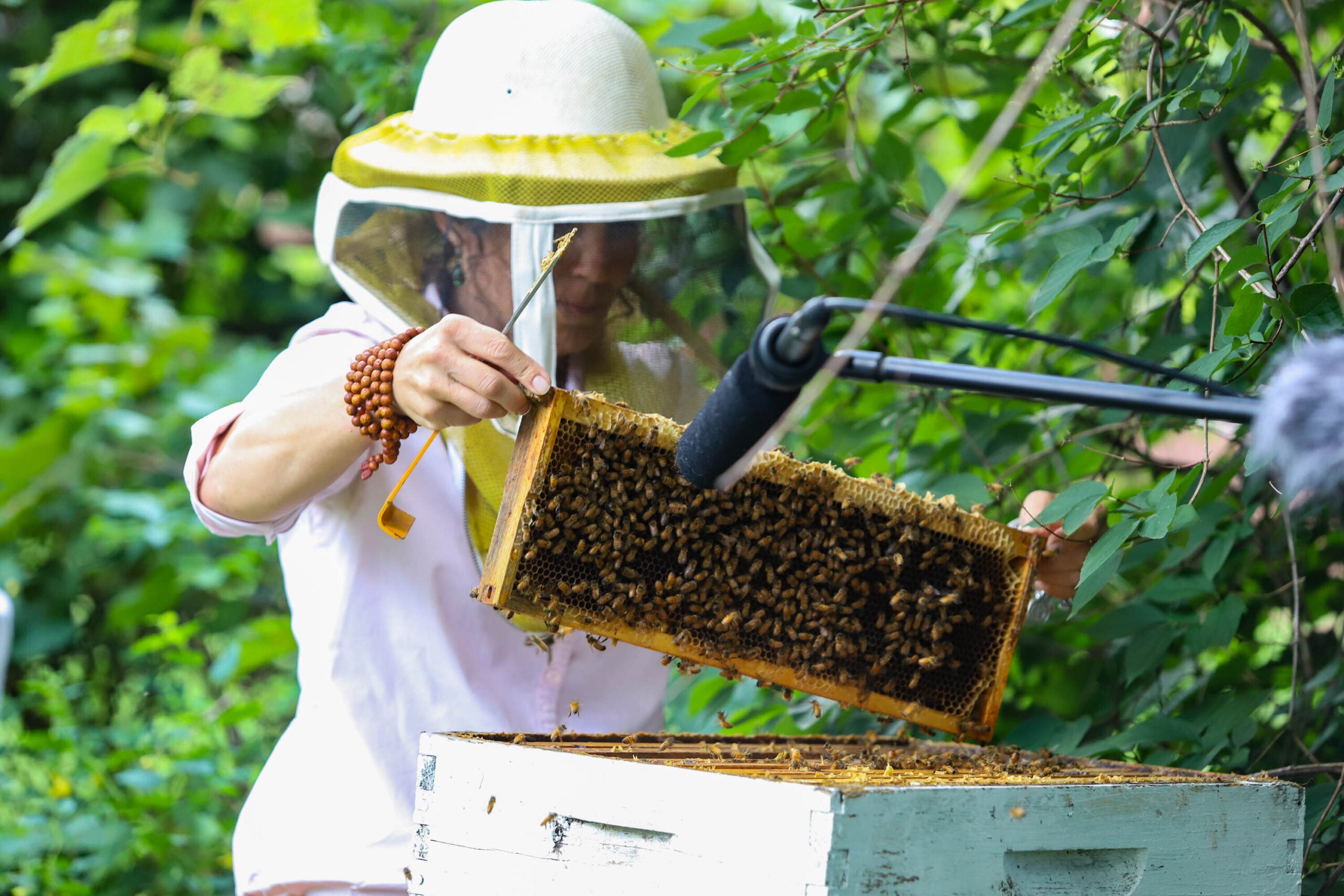Leo Tolstoy enjoyed opera but he also enjoyed making fun of it. In his novel War and Peace, in a scene set in 1811, we see the opera through the eyes of 19-year-old Natasha Rostova and it becomes a strange and amusing spectacle:
“In the center of the stage sat some girls in red bodices and white shirts. One very fat girl in a white silk dress sat apart on a bench with a piece of green cardboard glued to it. They all sang something. When they had finished their song the girl in white went up to the prompter’s box and a man wearing tight silk trousers and holding a plume and dagger went up to her and began singing and waving his arms.
“For awhile he sang alone, then they both paused while the orchestra played and the man fingered the girl’s hand, apparently awaiting the downbeat as a cue to start singing with her. They sang together and everyone in the theater began clapping and shouting while the man and woman on the stage–lovers apparently–began smiling, spreading their arms and bowing.
Stay informed on the latest news
Sign up for WPR’s email newsletter.
“After her life in the country and in her present serious mood, all of this seemed grotesque and funny to Natasha. She couldn’t follow the plot or listen to the music. She only saw the painted cardboard and the queerly dressed men and women who moved, talked, and sang so strangely in that brilliant light. [At first she felt embarrassed for the actors and then they amused her. She studied the faces in the audience, looking for the same reaction, but they all seemed intent on the stage and expressed delight that to Natasha, seemed contrived.]
“Feeling the bright light and the air warmed by the crowd, Natasha gradually passed into a state of giddiness, and she was seized by strange impulses. She wanted to jump onto the stage and sing with the actress, to reach out with her fan and touch an old gentleman sitting nearby, and then to lean over and tickle the beautiful Helene.”
Wisconsin Public Radio, © Copyright 2024, Board of Regents of the University of Wisconsin System and Wisconsin Educational Communications Board.







